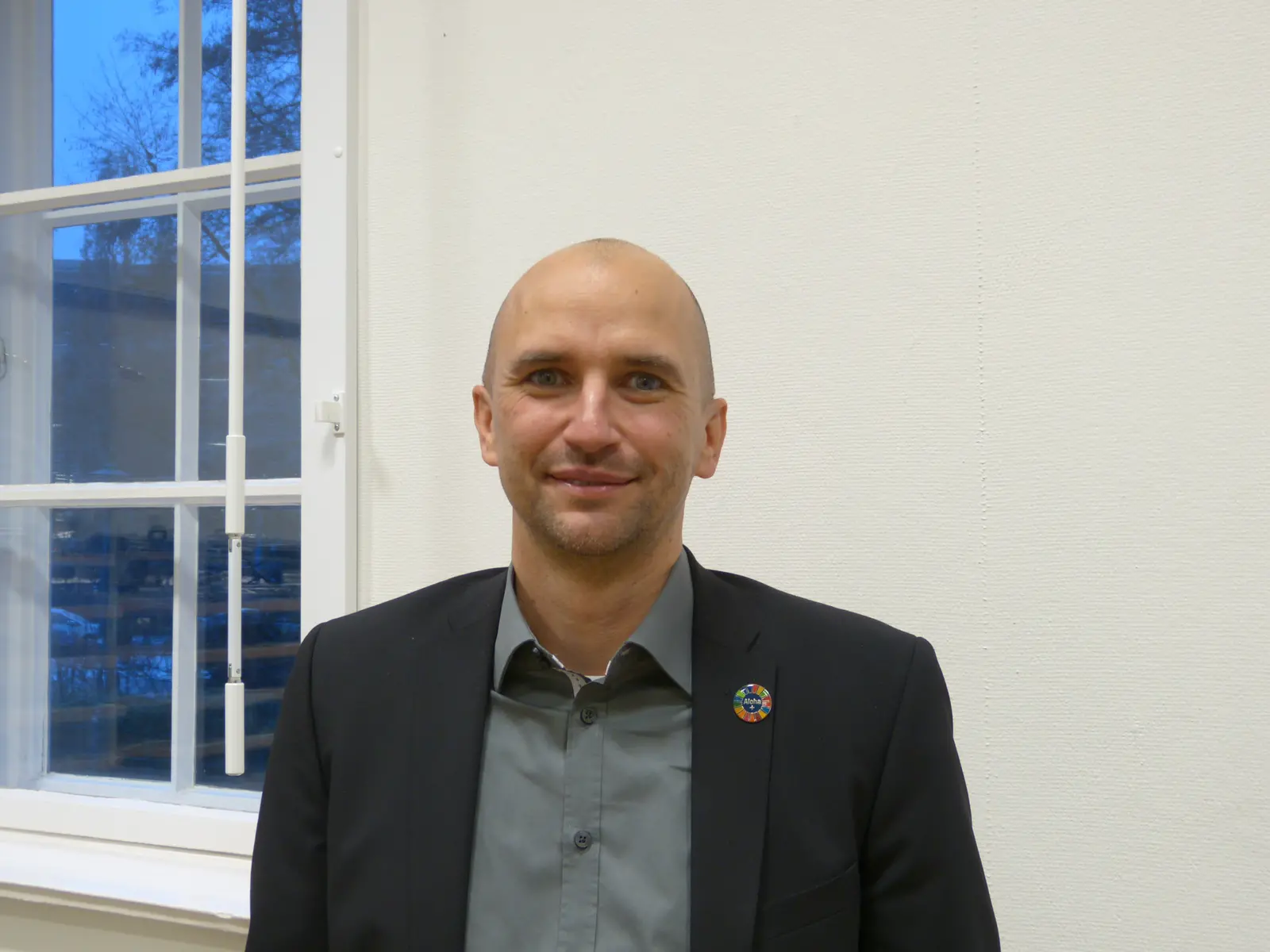New university president elected: Prof Dr Matthias Barth
The Eberswalde University for Sustainable Development (HNEE) eagerly awaited 18 January 2021, when Matthias Barth was named the new President of HNEE. Today, the 11-member University Senate, chaired by Prof Dr Uta Steinhardt, elected the successor to Wilhelm-Günther Vahrson. Barth, whose great passion is teaching and research for sustainability in higher education, prevailed against a challenger with a clear majority.

The 46-year-old has been elected President of the university for six years and will succeed Wilhelm-Günther Vahrson, who has led Eberswalde University since 1998 and will retire in March 2021. There were 26 applications for the publicly advertised position.
The selection committee approved a total of three candidates for the presidential election. The only candidate withdrew her application, so that two candidates for the presidency presented their ideas, goals and perspectives for the university in a 30-minute lecture open to the public. This was followed by a public question and answer session for each candidate. The Senate then met and questioned the candidates in a non-public session.
Matthias Barth's goals
"A particular concern of mine is and always has been higher education and the question of how we can best enable students to deal with the challenges of the 21st century in a creative way. I would like to help shape a clearly recognisable and nationally and internationally recognised Eberswalde profile for HNEE graduates. An even better positioning in the national and international community of sustainability sciences and further consistent promotion of young scientists are also important topics for me." This is how Matthias Barth describes some of the goals he would like to achieve during his term as the new President of HNEE. In addition, it is important to him to actively support the university's further development process towards becoming "an institution that wants to further develop and fulfil its role of social responsibility in the sustainability transformation" together with other status groups at HNEE.
Personal details
Matthias Barth has made a name for himself both nationally and internationally with his extensive expertise in the field of higher education for sustainable development with a focus on skills development, innovative learning environments and curriculum development. Barth holds a degree in environmental sciences, completed his doctorate in educational sciences in 2007 and habilitated in sustainability sciences at Leuphana University Lüneburg in 2011. Until 2010, he was a lecturer in sustainability sciences at the UNESCO Chair of Higher Education for Sustainability at Leuphana University Lüneburg. In December 2012, Barth was appointed Professor of Teaching and Learning in Environmental Sciences at the Ostwestfalen-Lippe University of Applied Sciences. Previously, until September 2012, he was a Senior Research Fellow at the School of Global Studies, Social Science and Planning at the Royal Melbourne Institute of Technology, where he led a research project on sustainability in higher education and student skills development. Barth currently holds the Chair of Education for Sustainable Development at Leuphana University Lüneburg.
Senate, Acting President Vahrson and Science Minister Schüle welcome election results
Prof. Dr Uta Steinhardt, Chair of the Senate, welcomes the outcome of the election and looks forward to working together. "Prof Dr Barth has been very successful in promoting sustainability in higher education in his career to date," said Steinhardt. "We expect him to provide important impetus for the future-oriented development of our university and the shaping of our unique selling points."
Prof Dr Wilhelm-Günther Vahrson, long-standing President of HNEE, is very pleased with the result of the election: "In recent years, HNEE has managed to create a distinctive profile that faces up to the major challenges with strategic vision. In Prof Dr Barth, we have found a personality who will continue to develop the university in the best possible way and in line with its profile, and who will represent its interests with vigour. I am convinced that he will not only further consolidate HNEE's excellent reputation as an important educational institution in the region, but will also systematically expand our function as a driving force for sustainable development beyond regional borders."
Science Minister Manja Schüle congratulates Matthias Barth on his election and thanks Wilhelm-Günther Vahrson for his work to date. "The Eberswalde University for Sustainable Development is not only Germany's 'greenest university' - with its clear profile and practice-oriented teaching and research, it is also a strong research institution and an important partner for the state government in expanding dual study programmes to secure skilled workers in Brandenburg. Matthias Barth is a sustainability expert with many years of experience and impressed the Senate in particular with his expertise in interdisciplinary and transdisciplinary sustainability research. I congratulate him warmly and wish him every success as the future President of HNEE," said Minister Schüle. "Wilhelm-Günther Vahrson, who has led the university with great commitment and expertise for more than 22 years, has played a significant role in the successful development of the university. He has made a significant contribution to creating the future in Brandenburg. I would like to thank him very much for his great work!"
The public university hearing of both presidential candidates took place in strict compliance with the current corona rules and with the permission of the Barnim district in the Alte Forstakademie on the city campus, with only the members of the Senate and the heads of the HNEE departments present. The presentations of both candidates were broadcast online so that all members of the university could follow the presentations on their home screens and also address their questions to the candidates online.
Note on image material
The photos available here may be used for reporting purposes. Please note the copyright notice © HNEE / Johanna Köhle